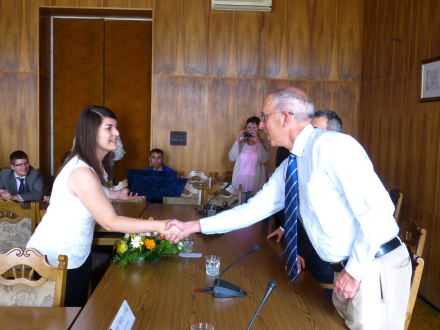2021.06.07.
In Dr Samantha Joy Cheesman’s most recent publication, “A comparative analysis of plea bargaining-The pursuit of Justice”, she sets out to show that there have developed alternative practices to the trial which are now calling into question and challenging pre-existing ideas of what constitutes a fair trial.
The book provides the reader with an insight into the institution of plea bargaining. A historical overview is given of the development of plea bargaining which is predominantly associated with the United States of America. The expression “plea bargain” conjures up images of a down on their luck defendant being offered a bargain that will get them out of trouble. It has been caricatured by the world of Hollywood but this glosses over many of the flaws with the practice.
The book was born out of the realization that the right to a fair trial in so many ways is now a nonsensical expression for several reasons. This was reaffirmed by the research that was conducted when writing this book. The case law of the USA, UK and the European Court of Human Rights (ECtHR) are analysed. The caselaw of the ECtHR has in its case law now coined the expression “overall fairness” of the trial to subsume those practices which may occur outside of the court room but impact upon the fairness of the trial. One such element that could be included in this category would be the practice of a plea bargain. The ECtHR does not want to be seen as interfering with the drafting of criminal law of the Member States when it comes to the application of the waiver of trial. Similarly, to the practice of plea bargaining so long as it can be established that any waiver was made “voluntarily and consciously” then it will not be deemed to have been coerced out of the defendant.
Particular focus is given to Article 6 (3) (c) of the European Convention on Human Rights (ECHR). Article 6 (3) (c) stipulates the right to have counsel and representation at all stages of the trial. In discussions surrounding the practice of plea bargaining a serious pitfall of the practice is the real and actual danger that innocent defendants will plead guilty to a crime they did not commit. If this is the case, then how or should the justice system adapt its pretence of pursuing the truth when it so clearly does not do this when employing alternatives to justice such as plea bargaining. Interestingly the ECtHR has only addressed the question of compatibility of the practice of plea bargaining with the ECHR in the key case of Natsvlishvili and Togonidze v. Georgia (Application no. 9043/05)
The reading of the ECtHR judgment in Natsvlishvili seems to suggest that a more expansive and permissive approach should be adopted towards plea bargains and incentives to enter guilty pleas provided that there are restrictions in place to protect the defendant. The decision in Natsvlishvili was handed down in recognition of and against the backdrop of the ever developing and unfolding practice of plea bargains in Europe. It is recognized by the ECtHR that the practice of waiver of trial is now becoming a common feature of European criminal justice systems and is viewed as being an essential mechanism for helping with speeding up adjudication and helping alleviate the caseload, reducing sentencing and the prison population as well. There are still prevalent blind spots with adopting this approach namely that waiver of trial calls into question the protection afforded by article 6 of the ECHR. Additionally, the more pervasive discrepancies in the varying socioeconomic status of defendants. Considering the Covid-19 pandemic this gap is increasing rather than decreasing. The pressure to waive the trial and the attached stresses of wanting to avoid court fees, lengthy trials and the inability to work all call into question the institution of the trial itself. The ECtHR should act as the gateway for the protection of human rights but with its recent decisions concerning waiver of trial it is sending the message that they will implicitly read true voluntariness unless proved otherwise. Yet again another hurdle for the defendant to overcome in asserting their right to a fair trial.






